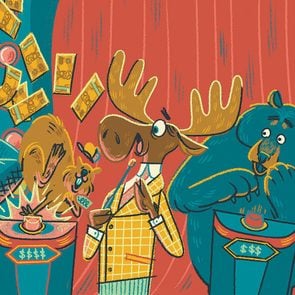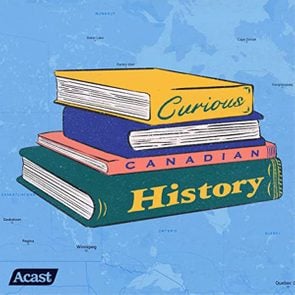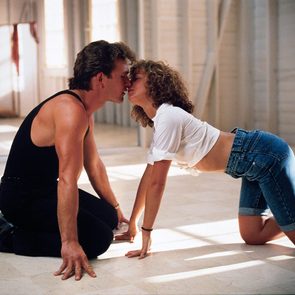It Was the Twilight of Radio—But the Dawn of Television
Charlottetown's Bernard J. Callaghan reflects on the 1950s programs that defined his childhood. How many of these classic series do you remember?
“Who knows what evil lurks in the hearts of men? Only the Shadow knows!” So said the character Lamont Cranston on radio’s The Shadow in the 1950s. We listened to that eerie invisible crime fighter’s voice, while audiences in Toronto and Montreal were also watching Howdy Doody and The Plouffe Family on television. Moreover, border cities were picking up American TV programs such as Texaco Star Theater Starring Milton Berle.
In other words, television and oldtime radio in Canada were at a crossroads: radio receding, television emerging. Like many others during that time, I was thoroughly immersed in both mediums, with each having a different effect on me.
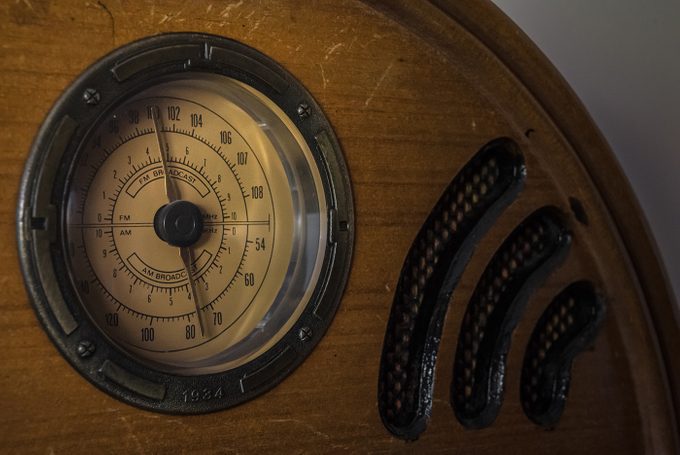
Radio Days
In our home, a Sparton radio sat in the living room beneath the glow of our floor lamp. I huddled up to the radio as if listening to a campfire storyteller.
Evening radio, especially, measured my week. The Whistling Cowboy on Sunday began the entertainment on our local station. After the program ended, I was inspired to go galloping up our dusty street to play with a friend who, like me, loved to yodel.
Then through CBA Sackville (CBC Radio’s Maritimes outpost) came Our Miss Brooks, starring Eve Arden as a sarcastic English teacher in love with the shy biology teacher Mr. Boynton, played by Jeff Chandler. Later still came Jack Benny debating inane topics suggested by crooner Dennis Day, with Jack typically responding, “Now, cut that out!”
Monday-evening radio affected me even more. I’d turn the dial to CBA and crawl under a blanket on the sofa as Ken Carpenter’s silky voice intoned, “Lux presents Hollywood!” Classic movies such as Laura, a mystery/romance about a missing woman, followed.
Nothing compared to Lux Radio Theater’s thrilling Secret of the Incas. Although just as terrifying was Suspense—this time, a cryptic Harlow Wilcox said: “Autolite presents, Suspense!” In one episode, I listened to a countdown in a bunker: “5, 4, 3, 2, 1…,” but nothing happened. Then came the sound of a vehicle roaring across the desert to a tower containing a bomb. Technicians were heard clanking up the ladder to tinker with the wires. Suddenly, there was an explosion! Such an episode of radio realism fit the Atomic Age very well.
Another evening, I listened to I Was a Communist for the FBI, with Dana Andrews playing Matt Cvetic, who was an actual person who infiltrated communist cells thriving in the McCarthy era. Episodes always closed with a variation of the line, “I walk alone.”
The patriotic spy drama made me want to stand tall and salute the radio. This feeling was not farfetched, because Canada had our own Matt Cvetic: Igor Gouzenko, a Soviet Embassy decoder who’d defected. Radio was capitalizing on the Red Scare.
Topping my week was Gunsmoke, which we listened to over a static-filled WCBS New York channel. William Conrad voiced a commanding Matt Dillon, who rode the radio range until 1961.
The next year, Suspense and another detective series, Yours Truly, Johnny Dollar, ended their runs—this was often cited as the end of the golden age of radio.
But why did radio drama trigger my imagination so much? Appealing solely to my ears rather than my eyes, radio dramas created a theatre in my mind. As I would learn years later in Marshall McLuhan’s book Understanding Media: The Extensions of Man, radio was “hot”—old-time radio, in particular, intensified one’s sense of hearing. This explains why I could “see” that atomic bomb exploding unexpectedly in Suspense.
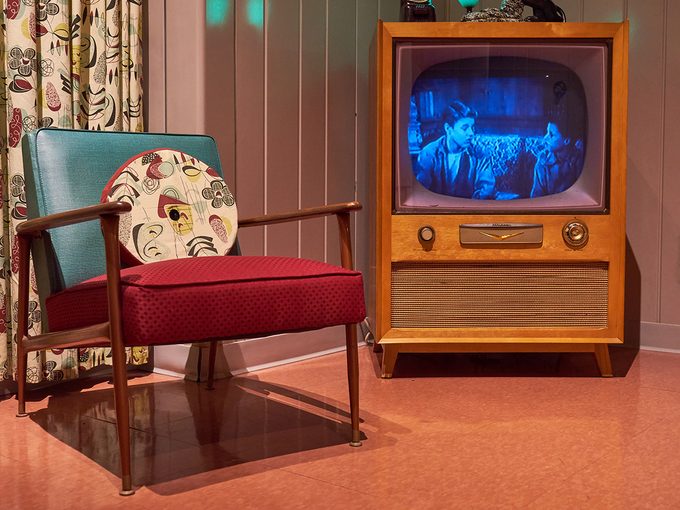
Time for TV
Meanwhile, television broke into my life. At first, I would glimpse Liberace’s fingers dancing over the keys on a TV in the window of an electronics store. Finally, in 1956, the manger of CFCY Radio launched Channel 13 Charlottetown. I was 15. My mother told me the exciting news while I was away at summer camp.
When I got home, I noticed my parents had moved the Sparton radio to a discreet area between our front windows. A four-legged television with rabbit ears now occupied the Sparton’s former hallowed spot.
Seated on the chesterfield, I was so eager for my first program that I even watched the preshow pattern. At last, a picture appeared, but all I saw was a jester cavorting before fake trees. That show, of course, was The Peppermint Prince, who delighted children. Viewing did get better: I was soon
laughing at Ernie Kovacs puffing his cigar like Groucho Marx.
Raised in the radio era, I was now entering the world of TV. My favourites slowly emerged. Sunday again became a key time, especially in the afternoon. First was You Are There, narrated by Walter Cronkite. The program lived up to its name. For example, thanks to the “reporters” (actors recreating the events), I felt like I was actually on the scene as German naval officers planned the scuttling of the limping battleship Graf Spee in Montevideo Harbour.
Then, in 1960 I discovered The Twilight Zone, which began with Rod Serling’s introduction: “There is a fifth dimension beyond that which is known to man.” This led into episodes such as “The Monsters Are Due on Maple Street,” in which aliens land in a town, creating such terror that neighbours turn on one another.
Unlike radio, TV heightened not just one sense, but used sight and sound, which further drew us into the program. As McLuhan wrote, TV was “cool,” requiring our participation.
Live TV really hooked me. By mid-1958, the Trans-Canada Microwave network (built to carry telephone and television signals from the nation’s
East Coast) had launched. I watched as TV cameras focused on Ripple Rock (an underwater mountain) within Seymour Narrows, B.C., near Campbell River. Engineers had tunnelled under the seabed and inside the rock to place explosives. In an instant, I witnessed Ripple Rock disappear in a plume of smoke and debris. And I felt as though I was actually present at this historic moment.
If you’re wondering whether the Lone Ranger will ever ride again or if Rod Serling will stir our fears with his words, take heart. Like a phoenix rising from the ashes, vintage radio and television continue to live on, viewable on our computers and iPads: after all, good entertainment is timeless.
Next, take a look back at classic TV shows that could only have been made in Canada.
